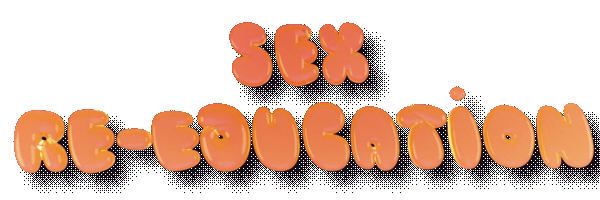Yes, Some Asexual People Masturbate. No, We Don’t Need To Explain Why
One of the questions I’m asked the most when people learn that I’m asexual is: “Do you masturbate?” This inquiry comes earlier in a conversation with curious near-strangers than you’d expect. It’s usually after I’m asked to explain that I don’t experience sexual attraction towards anyone but before they ask me if I can have children. It’s been the same since I first came out as asexual around a decade ago, at the age of 15. When I answer with an honest “Yes, all the time,” it’s usually followed by one of two reactions. The inquirer is either relieved or confused.
AdvertisementADVERTISEMENT
Relieved because I’ve unwittingly assured them that I’m not a complete anomaly, I’m still relatively relatable, I’m still experiencing something “normal” even if I’m not sexually attracted to anyone. It makes me a more palatable kind of asexual, especially if I’m still sexually available.
Or they’re confused because they don’t understand how I could possibly masturbate without experiencing sexual attraction towards anyone. Either way, the “masturbation question” is an inappropriate and irrelevant way of gauging just how asexual we are and how alien we should be perceived.
There are a lot of widespread misconceptions like this about asexuality, especially when it comes to pleasure. Most don’t realise that asexuality is a type of sexual orientation characterised by experiencing little to no sexual attraction towards anyone, regardless of their gender. It doesn’t mean “not having any sexual feelings or associations” nor does it mean having no sexuality at all.
Asexuality is specifically concerned with the lack of sexual desire we feel towards other people, our lack of innate inclination to involve them in our sexuality. It isn’t a lifestyle choice, a reflection of social attitudes or an absence of libido.
A lot of this misunderstanding comes from the way we’re taught to conceptualise sexuality in our culture and the emphasis we place on sexual attraction in particular. Sexual pleasure and asexuality are often treated as two things that don’t (or shouldn’t) go together. I have always embraced my sexuality as an asexual woman.
Masturbation has never been a point of contention for me but I soon learned that it is for other people. Desiring sexual pleasure, independently or not, is seen as a contradiction that invalidates our identity. Sexual pleasure for asexual people has been politicised and it means that there's no universally “acceptable” way to be asexual, no matter your degree of sexual participation.
AdvertisementADVERTISEMENT
“
We could all do with disentangling our sexuality from others and focus more on our relationship with our own body.
”
Remember, whether we grow up to identify as asexual or not, the majority of people initially experience sexuality in a very asexual way. By that I mean that our sexuality exists independently of the desire to have sex with anyone. Most of us discover masturbation before we even know what sex is, before the idea of sexual attraction even crosses our minds.
Many studies have found that people start masturbating during their childhood, even in their infancy. While we don’t realise that’s what we’re doing, or remember doing it at that age, we learn that stimulating parts of our body can be enjoyed before we know what sex is. It isn’t until puberty that our sexuality becomes directed towards other people, although that doesn’t happen to everyone. It didn’t happen to me but that doesn’t prevent me from experiencing other aspects of sexuality.
I don’t need to picture having sex to have an orgasm, I just need to focus on what I’m trying to achieve, and I like that. I enjoy the fact that my sexuality isn’t dependent on anyone else; it doesn’t need to be fulfilled by anyone else. It has been a constant throughout my life and — quite literally — an act of self-love. I think we could all do with more of that. We could all do with disentangling our sexuality from others and focus more on our relationship with our own body — as many learned to do in the pandemic.
AdvertisementADVERTISEMENT
So when someone next asks me whether I can or do masturbate, I'll remind them that the answer is irrelevant. Masturbation has no bearing on my sexual orientation and it doesn't make me more or less asexual. It doesn’t make my asexuality more normal or more unusual. Everyone experiences asexuality differently, just as every single human experiences their sexuality differently — even if they have a label in common.
Whether or not someone understands and respects my identity has nothing to do with whether or not I sexually pleasure myself. Our identity should not stifle our sexual expression and preconceived ideas of how our orientation should manifest shouldn't affect our pursuit of sexual pleasure. We should embrace our uniqueness and embrace ourselves...literally.
Yasmin Benoit is a British model and multi-award-winning asexual activist. She started the #ThisIsWhatAsexualLooksLike movement for diverse asexual representation, cofounded International Asexuality, and launched the UK's first asexual rights initiative this year.
Want more? Get Refinery29 Australia’s best stories delivered to your inbox each week. Sign up here!
AdvertisementADVERTISEMENT







